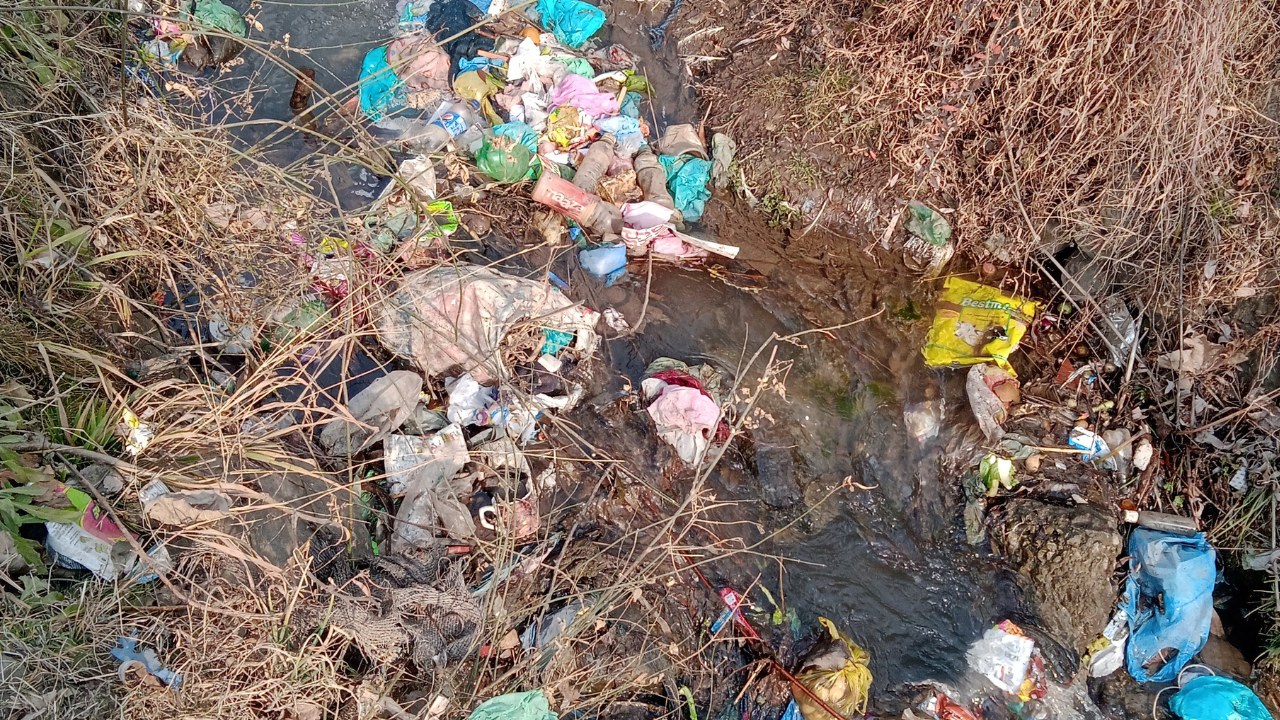water pollution:
Water pollution occurs when pollutants are released into lakes, streams, rivers, estuaries, and seas to the extent that they obstruct the water’s intended use or the ecosystems‘ normal ability to function. Water pollution can also involve the discharge of energy into bodies of water, such as heat or radioactivity, in addition to the release of materials like chemicals, debris, or germs.
Types of water pollution:
1. Pollution of Surface Water
Surface water pollution occurs when hazardous materials come into contact with various water sources. Surface water pollution is caused by dangerous pollutants that combine or dissolve with lakes, lagoons, and seas from several sources.
2. Pollution of Ground Water
Rainwater deeply penetrates the soil and crops, carrying chemicals and pesticides with it. Pesticides contaminate groundwater by combining with it.
3 Particulate Matter Pollution
Pollutants in this pollution enter the water and do not combine with the molecules of the water. As a result, silt is formed on the waterbed by the suspended particles in the river. As a result, nutrients from the water were removed, polluting it.
4 Microbiological contamination
The source of this kind of water pollution is microorganisms. While the majority of microorganisms are benign, certain viruses and bacteria can pose a major threat to one’s health.
5 Chemical contamination of water
Chemicals are used by numerous companies and farms for a variety of objectives. It contaminates water. Chemicals used to eradicate pests, weeds, and insects seep into the water and increase the pollution. Water contamination is also caused by industrial solvents and metals
Causes of water pollution:
* Warming of the planet
As a result of rising global temperatures brought on by CO2 emissions, the oxygen content of water decreases.
* Deforestation
Clearing forests can lead to the depletion of water resources and the production of organic residue, which serves as a haven for pathogenic bacteria.
* Industry, agriculture, and raising livestock
One of the primary reasons for the eutrophication of water is chemical waste from these industries.
* Debris and excrement water dumping
According to the UN, untreated sewage makes up more than 80% of the world’s rivers and seas.
* Transportation by sea
A significant portion of the plastic pollution found in the water is caused by cargo ships, tankers, and fishing boats.
* Excessive spills
Oil and its compounds can leak during storage and transportation, contaminating our water supplies.
Effects of water pollution:
IMPACT OF POLLUTION OF WATER
Humans and aquatic life are both impacted by water pollution. The majority of water supplies near cities and metropolitan areas are contaminated by chemicals dumped, whether officially or illegally, and trash. Here are a few typical and harmful consequences of water body pollution.
REACTIONS WITH HUMAN BEINGS
Because life is a cycle, humankind’s careless actions frequently come back to haunt us. The human family has been impacted by the addition of pollutants to water sources in a number of ways. A 2017 WHO report states that 2.1 billion people lack access to clean water. 785 million people were reported to be without access to clean drinking water in 2019.
Diseases are among the main consequences of this. According to the World Health Organization, cholera causes over 120,000 deaths every year. Furthermore, among infants exposed to Fukushima, the prevalence of thyroid cancer rose by 70%.
AQUATIC LIFE DEATH
The most vulnerable creatures and plants to water pollution are aquatic life-supporting organisms. A helpful overview of the consequences of pollution on aquatic life can be obtained from statistics on the Deep Horizon disaster provided by the Center for Biological Diversity. According to the report, over 82,000 birds, 25,900 marine mammals, 6165 sea turtles, and an unspecified number of fish and invertebrates were injured by the 2010 leak in the Gulf of Mexico.
FOOD CHAIN DESTRUCTION
Toxins from one level of the food chain are transferred to higher levels by pollution, upsetting the balance of the system. Pollution has the power to sometimes completely eradicate a food chain segment. These have an impact on other organisms by either death (if it wipes out the prey) or excessive development in the event that the predator perishes.
Best 5 ways to prevent water pollution:
The pollution of water is increasing. More than 11 million metric tons of plastic debris end up in our oceans each year. A source of water tainted with human waste is used by 2 billion people. It’s time to make our lakes, rivers, and seas clean. To enter the game, try these five methods:
* First, get plogging. The majority of the trash that finds its way into rivers originates on land. If it is not disposed of properly, it might easily wind up in a lake, river, or the ocean. Picking up trash when you jog, or “plogging,” can make a difference.
* Safely dispose of hazardous garbage. Toxic waste dumped on the ground can affect neighboring water supplies, groundwater, and the soil. Consider the disposal of materials such as paint, motor oil, insecticides, medications, household cleansers, and even the flea collar on your pet.
* Hazardous compounds found in many pesticides and fertilizers have the potential to damage groundwater and soil. If you must use them, use them sparingly. Additionally poisonous to other species, such as honeybees, are pesticides.
Hazardous compounds found in many pesticides and fertilizers have the potential to damage groundwater and soil. If you must use them, use them sparingly. Additionally poisonous to other species, such as honeybees, are pesticides.
* Avoid flushing common household goods like dental floss, sanitary napkins, wet wipes, and diapers down the toilet. These materials clog water pipes and contaminate our rivers since they don’t decompose in the same manner as toilet paper.
* Dispose of litter responsibly. Don’t dump any kind of trash or garbage into or near the water, especially while you’re at a lake, river, or ocean location. The wind and tide will eventually carry it into the water supply even if you drop it on the beach.
